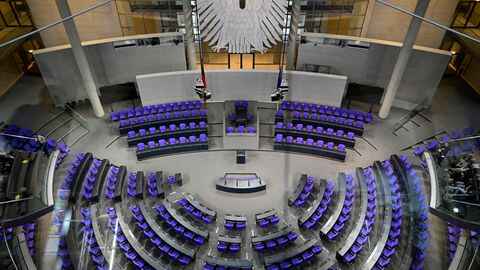As the nation experiences its second consecutive year of economic downturn, the expedited timeline aims to restore political stability.
Following the breakdown of Chancellor Olaf Scholz’s three-party coalition last week, the main parties have decided to hold quick elections in Germany on February 23 with the goal of forming a stable government.
The early schedule, which would see center-left leader Scholz seek a vote of confidence on December 16, was agreed upon by the nation’s two largest parties, according to Rolf Muetzenich, parliamentary leader of Scholz’s Social Democrats (SPD).
In a compromise worked out with the conservative opposition Christian Democrats (CDU) and its Bavarian partners CSU, this would open the door for the February vote.
In the midst of increased global instability, with wars raging in the Middle East and Ukraine, and as Europe’s largest economy prepares to contract for the second consecutive year, the accord aims to swiftly restore political stability.
When Donald Trump takes office as US president on January 20, Germany will be trapped in the middle of its campaign phase and run by a lame duck chancellor due to the election date.
Despite low polling, embattled Scholz, who plans to run again, first proposed an election in late March but was strongly pressured by all other parties to expedite the process.
Friedrich Merz, the leader of the CDU, has been pushing hard for an early election, which two-thirds of people support, according to a recent poll. The CDU is now leading the polls.
“We don’t have unlimited time to elect a new government in Germany, regardless of who leads it… because the world around us is not waiting,” Merz stated on Tuesday.
“Decisions are made in Europe, Asia, and the US, so it’s not like everyone is holding their breath and observing Germany with excitement.
“The world expects a Germany that is capable of taking action.”
Campaign for winter
Politicians would be forced to conduct their campaigns on February 23 in the gloom and cold of winter, when voters are less likely to turn out for outdoor activities than they are during the typical summer campaign seasons.
President Frank-Walter Steinmeier will have 21 days to dissolve the Bundestag if Scholz loses the lower chamber of parliament’s vote of confidence.
After the dissolution, elections must be held within sixty days.
In a three-way coalition with the liberal and pro-business Free Democrats (FDP) and the left-leaning Greens, Scholz succeeded Angela Merkel of the CDU in late 2021.
However, the minor party left the cabinet last week when Scholz sacked the dissident FDP finance minister Christian Linder, escalating growing disagreements over fiscal and economic policies.
The Greens and Scholz’s SPD have since continued to form a minority administration that requires opposition backing in order to enact laws, which the CDU/CSU had refused without specifying when an election would take place.






